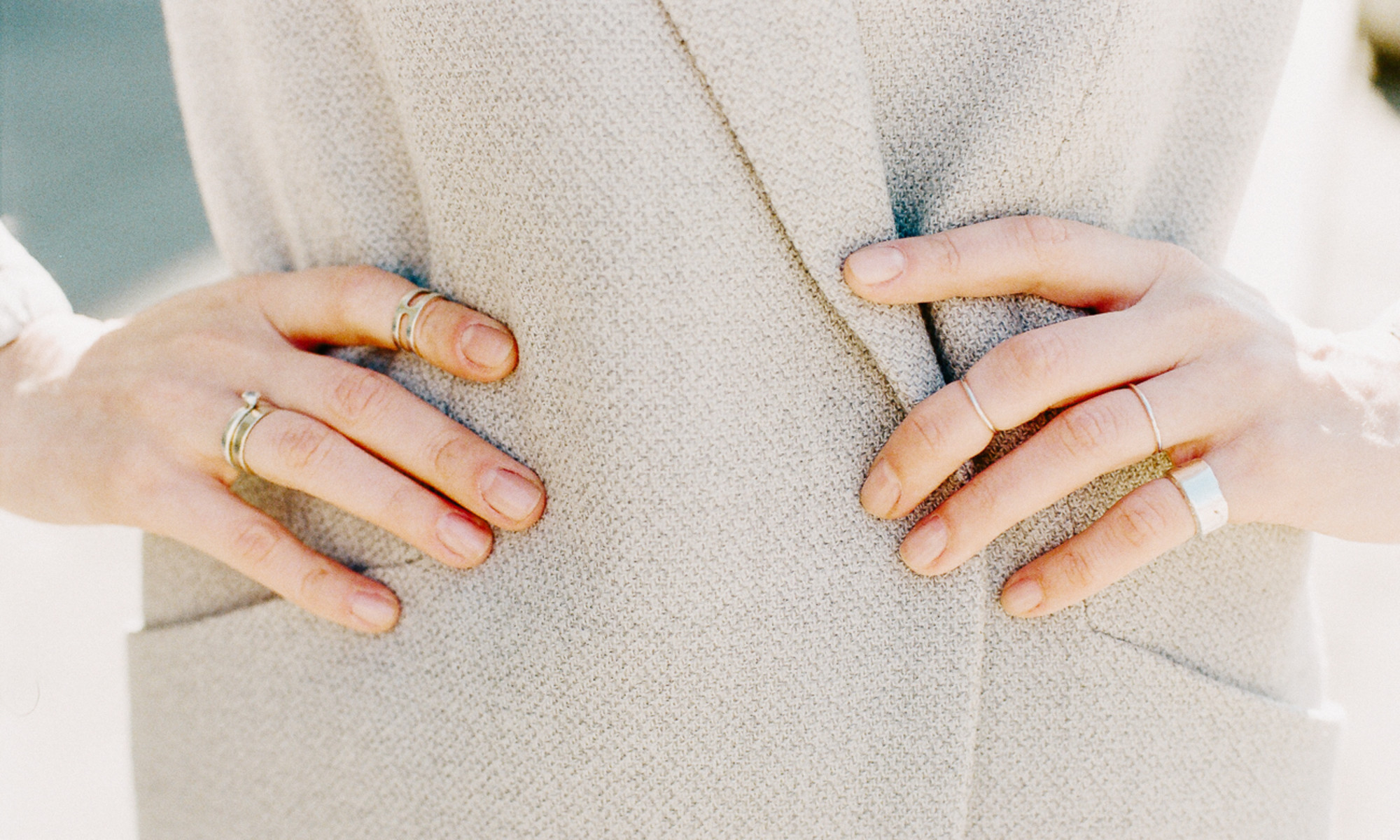Leaning into Change and Trusting the World
Ann Tashi Slater talks with best-selling author Katherine May about the gift of “winter” periods and the transformative power of attention. The post Leaning into Change and Trusting the World appeared first on Tricycle: The Buddhist Review.

Between-States: Conversations About Bardo and Life
In Tibetan Buddhism, “bardo” is a between-state. The passage from death to rebirth is a bardo, as well as the journey from birth to death. The conversations in “Between-States” explore bardo concepts like acceptance, interconnectedness, and impermanence in relation to children and parents, marriage and friendship, and work and creativity, illuminating the possibilities for discovering new ways of seeing and finding lasting happiness as we travel through life.
***
“My work is all about impermanence,” says best-selling British author Katherine May. In her latest book, Enchantment: Reawakening Wonder in An Exhausted Age (2023), May looks at how appreciating the beauty of our fleeting world can help us overcome the burnout brought on by “rolling news cycles, the chatter on social media, the way that our families split along partisan lines.” May’s books also include Wintering: The Power of Rest and Retreat in Difficult Times (2020), in which she explores ways of embracing the “winter” periods of unwelcome change that we inevitably experience in life. She writes, “We may never choose to winter, but we can choose how.”
May’s work has appeared in the New York Times, the Observer, the Wall Street Journal, and Time, among other publications. Previously the program director for creative writing at Canterbury Christ Church University, May has led writing programs for Tate Britain, the National Gallery, and the City of London Festival. She hosts How We Live Now: Pathways for a Post-Everything World, a podcast that features conversations about “the cultural, social, and spiritual mindset for this long moment.”
From her home in Whitstable, UK, May spoke with me about being prepared for change, what we can learn from illness, and the importance of paying attention.
*
During the bardo times of transition that we go through between birth and death—what you call “winter” periods—we often struggle because we’re unwilling to accept that the existence we’ve known is over. This might happen when a relationship ends, when you lose your job, when a loved one dies. Is it hard for you to let go when something is finished? It’s almost a skill you learn throughout your life, if you let yourself. Writing Wintering taught me a lot about how to see change coming, to notice it for what it is, and to consciously let it happen. We all have that childlike resistance to change that says, “I don’t want this to happen, so it’s not going to happen. I’m going to strain with every fiber to prevent change.”
I remember feeling that way when I was young. As I’ve grown older, I’ve become more adept at saying, “Here’s some change I have agency within, but I don’t control whether it happens or not.” Therefore, some of my work is to lean into the parts of change that are inevitable. Not all change is chosen, and, ultimately, we have to go with it.
What’s an example of how your view of change has evolved? When my grandmother died, I was 17. Not only was her death very unwanted but I hadn’t expected it—I didn’t know enough about life and death to realize she was at the end. Our first encounter with death is a shock and a perspective shift, and I found it hard to accept. I hadn’t foreseen that losing my grandmother would be such a momentous moment.
Four years later, when my grandfather died, I was still losing someone I loved, but I was more prepared. I understood it might happen, which was a major step. I really noticed that I’d adapted. I grieved, but the quality of that grief was different for knowing that I couldn’t stop my grandfather’s death. That I couldn’t have any impact on the natural process of life. My work was to bend into it.
How did you do that? I consciously went and said goodbye to my grandfather, which I hadn’t done with my grandmother. I didn’t go immediately when she was dying, and I always regretted it. When I heard my grandfather was ill in Spain, I flew over straightaway, no hesitation. I put the airfare on my credit card and got there as quickly as possible. And I had some beautiful moments with him. My cousin came with me, and we didn’t know what we were about to walk into, but there he was, sitting up in bed and still lucid, chuckling away! We hugged him and stroked his arms and talked with him and had a lovely time.
He died very suddenly, a couple of days later, just as he was about to be let out of the hospital. It felt like a perfect death. He’d told us the things he wanted to tell us, and I felt at peace with it.
Another unwelcome bardo we may experience is when we ourselves get sick. But even though we think of illness as something to avoid, it’s a bardo that’s believed to offer great possibilities for new understanding. You’ve written about the fresh perspectives that illness has given you. What have you come to see? I’ve had a few quite serious illnesses, and they’ve taught me a lot. The most recent was when Enchantment was about to be published. My whole being had been pointed toward launching this book and going out into the world and talking about it, and then I got sick to the extent that I couldn’t get out of bed. Watching loss come toward me, thinking perhaps I’ll be better by launch date, and watching all of that go past, was horrifying. But it’s an instance of what I was saying about our childlike resistance to change. Getting sick showed me again that I don’t get to always decide matters in one way or another; it was another of the many life lessons that have taught me to surrender and detach from my plans.
We’re talking a lot in our culture about burnout, and how it can make us sick. That’s illness visiting us and inviting us to reflect as we’re taken out of our lives.
This time, I learned that I had to trust that the people around me would look after my book. I had to trust the relationships I’ve made with my readers, who have always been so important to me. I was thinking, “Everyone’s going to hate me, they’re going to be so angry with me. I’ll not have turned up to these things I’ve said I’m going to turn up to.” It’s a beautiful experience when, instead, everyone says, “Are you all right? Don’t worry. I’m worried about you.” It’s easier to give care, but sometimes you’re taught to receive care and permit yourself to be weak for a while. You come out trusting the world a bit more.
So this recent illness was an example of a winter period that can be experienced as a beneficial retreat from ordinary life. Absolutely. Our relationship with illness is about cure and getting through as quickly as possible, about pushing suffering away. But illness is an important spiritual transition because it profoundly changes us. That change can be a process of enormous loss, but that loss can be a spiritual process. It can be a process of profound enrichment of life; it can deepen our relationships and our understanding of what it means to be human.
Illness often visits me at key transitionary points. Underneath the overt physical process that I’m going through, there’s something happening that speaks to bigger movements. I think that illness often offers us a break with the everyday that’s very much needed by the time it comes. We’re talking a lot in our culture about burnout, and how it can make us sick. That’s illness visiting us and inviting us to reflect as we’re taken out of our lives.
Has illness influenced the way that you live day-to-day? It’s led me to try to have a different relationship with reality. Through periods of illness, of being in retreat, I’ve come to see that we as a whole are more good than bad. One of the reasons I started writing Enchantment was that I was tired of people indulging in this sense that the world is ending, like: Everything’s awful. We’ve screwed up. That’s it. There’s no point anymore. We talk very apocalyptically, but the reflective time that illness provides has shown me that if you divert your attention into the world day-to-day, you’ll see something beautiful happening between human beings, this species that we now think is so degraded and hopelessly awful. You see acts of kindness happening constantly if you pause and look.
In Enchantment, you also write about attention and day-to-day life in terms of small losses that seem insignificant but matter greatly. Can you talk a bit about this? I was writing in the context of the pandemic, when there were loads of tiny losses that I didn’t pay attention to because I thought they were no big deal. Things like not seeing other people at the school gates every morning and having short conversations like, “Hi, how are you? Are you OK? We must have a cup of tea.” I was hanging out with my friends on Zoom, but I missed that casual level of contact, the way our encounters with people randomize our day—when our day is completely in our control, it’s pretty miserable! There was also the loss of autonomy, like not being able to go for a walk for longer than thirty minutes, the length of time we were allowed at the beginning of the pandemic. The loss of being out in nature and observing the seasons as they change. All these little losses became complete disorientation for me. The cumulative effect was enormous, even though every small sacrifice felt fine. It became a big deal, and I didn’t know how to articulate it.
In general, we’ve been experiencing losses in this way as a society for a long time. Losing community. Losing contact with the natural world. These losses are things that we haven’t paid attention to, that we’ve gone into willingly, but they’ve mounted up and they’re leading to a society that is lonely, depressed, anxious, and unable to orient itself toward contentment.
The bardo teachings tell us that when we pay attention, new wisdom becomes available, and this can help us find lasting happiness. In Enchantment, you say something that speaks to this: “The deliberate pursuit of attention . . . does not mystically draw in anything external to me. Instead, it creates experiences that rearrange what I know to find the insights I need today.” How does attention do this? The act of paying attention is transformational. We have this belief, for example, that everything interesting is found elsewhere, not in our local landscape or our homes. The quality of your attention will transform that attitude, and start to make the land that you know and that you have a conversant relationship with completely different. I’ve been living through this in the last decade as I’ve discovered the deep contentment that comes with learning your landscape and walking it deliberately.
We have this belief, for example, that everything interesting is found elsewhere, not in our local landscape or our homes. The quality of your attention will transform that attitude.
My dog had an operation on her leg, and she can walk for only ten minutes. So we just go around the block through the alleys. It’s a really unglamorous walk, and I’ve been feeling heavyhearted about it every day. We used to go to the seafront, and I loved that time with her, marching along and seeing the waves. Now it’s like, “Oh, we’re going to go through the alleys and sniff at things.” But I noticed when I walked her yesterday that crocuses have broken through the pavement in the alleyway behind my house. The first sign of spring arriving, the power of these tiny things to crack through tarmac, felt exciting and special. It talks to me about the potency of the wild world carrying on without human intervention.
You’ve learned so much about living well, and you’re putting what you’ve learned into action. Do you feel like you’ll have regrets when your time comes? No, I don’t. I would have regrets if I hadn’t told the people around me that I loved them. If I hadn’t listened to them when they needed me. If I hadn’t stopped to notice what I cared about. Those are the kinds of things I would regret.
It all comes back to attention: Big regrets don’t make any sense if you’ve been paying attention throughout your life. Standing where I am, I don’t think I’m going to have those regrets. I hope that by paying attention, I can stave off that feeling.

 AbJimroe
AbJimroe 































